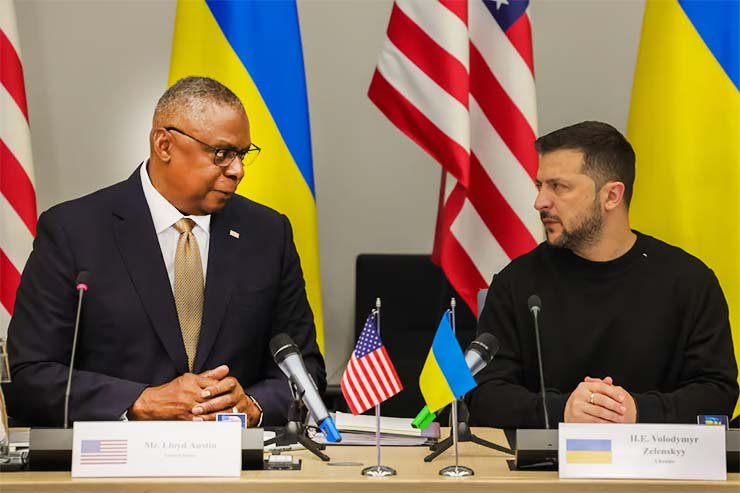
Washington: US Secretary of Defence Lloyd Austin said he has been speaking with allies in Europe about how to send Ukraine more air defence systems.
He discussed the conversations in a Pentagon press conference, referencing a series of one-on-one calls held this week.
Pentagon readouts say Austin spoke with defence officials in Romania, the United Kingdom, Sweden, the Netherlands and Greece, among others.
“Going forward, we’ll be able to, hopefully work with a number of countries to put together additional Patriot capability” for Ukraine, Austin said.
His remarks came after the 21st meeting of a coalition the US convened to support Kyiv’s self-defence.
Friday, April 26 marked the two-year anniversary of the Ukraine Defence Contact Group, or UDCG, an occasion that prompted Ukrainian President Volodomyr Zelenskyy to address the summit virtually.
“We urgently need Patriot systems and missiles,” Zelenskyy said in a post on X, formerly Twitter, accompanying his remarks. Ukraine, he argued, is seven batteries short of what it needs.
Throughout the war, Pentagon officials have said Ukraine needs a steady supply of air defence interceptors to stop volleys of attack drones and missiles. The urgency for those missiles rose when American aid ran out at the start of this year, and Ukraine began rationing its stocks.
After waiting for half a year, Congress approved a $48 billion refresh of security aid to Ukraine, and the Pentagon rushed Kyiv a $1 billion batch of aid, which includes air defence interceptors
Austin also announced a separate $6 billion package on April 26. While it will include air defence, this tranche is part of a longer-term pool of funding and the weapons may not arrive for years.
Meanwhile, Russia has increased its production of one-way attack drones and missiles that can fire deep into Ukraine.
Germany said this month that it will send Kyiv another Patriot battery, though other European leaders have been more cautious.
“We’re going to ask them to accept a little bit more risk so that we can do what’s necessary in Ukraine,” Austin said.















